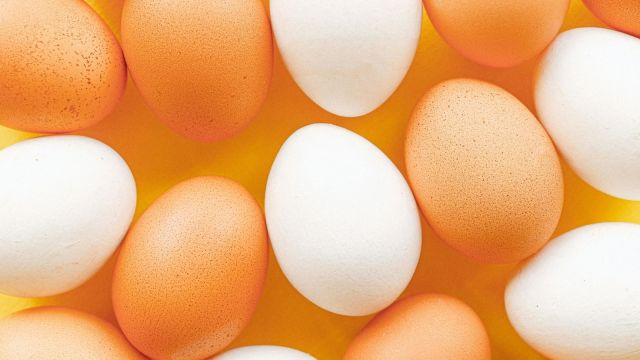An egg a day is good for the heart: New study cracks myth of eggs raising LDL cholesterol, flags saturated fats instead
Cardiologist explains why research lends weight to revised guidelines.
 While cardiologists had already revised guidelines related to eggs following research that ruled out their potential to harm heart health, the real challenge is beating a mindset. (Credit: pexels.com)
While cardiologists had already revised guidelines related to eggs following research that ruled out their potential to harm heart health, the real challenge is beating a mindset. (Credit: pexels.com)A new research has finally ended the debate over eggs being the culprit for elevated levels of low-density lipoprotein (LDL) or bad cholesterol in the blood. Not only that, consuming eggs may help reduce LDL, it says and flags saturated fats as the real threat.
In a world-first study, researchers at the University of South Australia showed that eating two eggs a day, as part of a low saturated fat diet, can even help reduce LDL cholesterol and lower the risk of heart disease. Lead researcher Prof Jon Buckley, said, “Eggs have long been unfairly cracked by outdated dietary advice. They’re unique — high in cholesterol, yes, but low in saturated fat. Yet it’s their cholesterol level that has often caused people to question their place in a healthy diet. In this study, we separated the effects of cholesterol and saturated fat, finding that high dietary cholesterol from eggs, when eaten as part of a low saturated fat diet, does not raise bad cholesterol levels. Instead, it was the saturated fat that was the real driver of cholesterol elevation.”
What does this mean for a heart diet?
While cardiologists had already revised guidelines related to eggs following research that ruled out their potential to harm heart health, the real challenge is beating a mindset. “I always prescribe one whole egg daily for my patients because many studies have shown that dietary cholesterol does not impact the existing cholesterol levels in your blood. The liver produces cholesterol and even regulates its levels. When dietary intake increases, the liver responds by reducing its own production. But I am strict about cutting out saturated fats as the study says. I absolutely recommend cutting out red meat, coconut oil and palm oil from your diet if you have high cholesterol,” says Dr Balbir Singh, group chairman, cardiac sciences, Pan Max.
Why dietary cholesterol in eggs is not related to LDL
An egg is full of nutrients, providing protein, healthy fats, vitamins and minerals, making it a key ingredient of your morning breakfast to kickstart the day. “An egg has 186 milligrams of cholesterol, all of which is concentrated around the yolk. It is a good source of HDL (high-density lipoprotein), what we call good cholesterol. Elevated HDL levels are associated with a reduced risk of heart disease. Eggs have Omega-3 fatty acids, which can help lower triglyceride in the blood and are cardio-protective. They contain vitamins B6, B12, D and choline, all of which are good for the heart. Eggs have protein heft, which can help with weight management and prevent body fat, thereby keeping the heart healthy,” says Dr Singh.
Instead, according to him, genetics, the types of fats in diet (particularly trans fats and saturated fats) and overall lifestyle play a much larger role in determining blood cholesterol levels.
What should people with high cholesterol do?
“As I said, one egg a day is enough,” says Dr Singh. But avoid an overload if you are having it with other sources of dietary cholesterol like meat, dairy and processed foods like sausages. “Keep to moderation and watch your animal protein combinations. Cut out all frozen and processed meats,” he adds.
Make eggs a part of a balanced diet rich in fruits, vegetables, whole grains and legumes, which provide fibre and antioxidants and ensure healthy cholesterol levels.



- 01
- 02
- 03
- 04
- 05




























